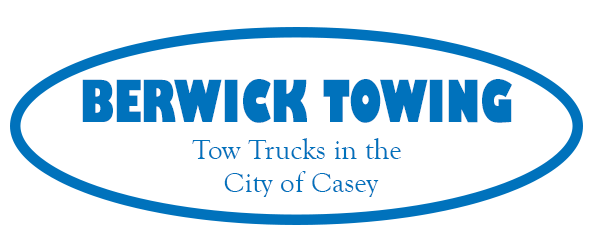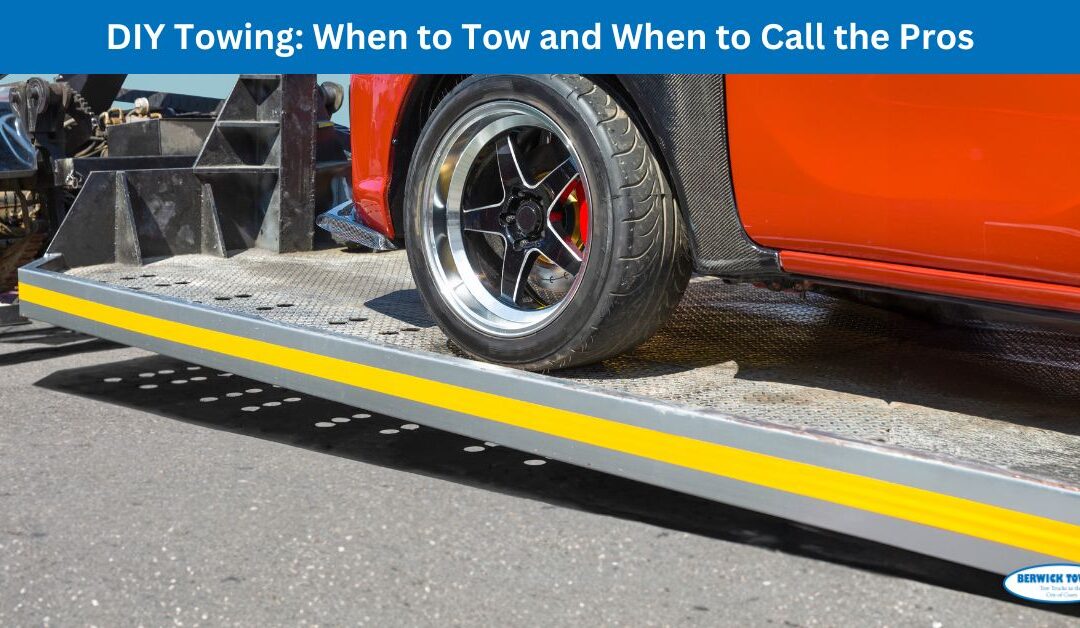Towing a vehicle on your own can be tempting, especially if you have access to a truck and a tow strap. While it might seem like a quick, cost-saving solution, DIY towing can be risky if not done properly. Knowing when it’s safe to tow on your own and when it’s best to leave the job to professionals can save you from damage, accidents, or worse. Here’s a guide to help you make the right call.
1. When DIY Towing Is an Option
In certain situations, towing a vehicle on your own is possible if you have the right equipment and experience. However, these scenarios are usually limited to specific conditions. Here are the situations where DIY towing might be an acceptable option:
Short Distances
Towing over short distances, like moving a disabled vehicle from one point of your property to another or pulling a car to a nearby repair shop within a few miles, is generally feasible if you have the proper towing vehicle and equipment. In these cases, you’ll need to drive slowly and ensure safety procedures are followed to avoid accidents.
Low-Speed Towing
DIY towing is suitable for low-speed scenarios, such as towing a car out of a ditch or pulling a stalled vehicle to a nearby street. If you need to drive on highways or at regular road speeds, it’s much safer to call in the professionals. The faster you go, the greater the risk of losing control or damaging the towed vehicle.
Using Proper Equipment
If you have a proper tow hitch, tow straps, chains, and safety lights, you can consider DIY towing. Never attempt to tow a vehicle using ropes or any improvised materials. They can snap under pressure, causing severe damage or injury. Always ensure that your towing vehicle is rated to handle the weight of the towed vehicle.
Familiarity with the Vehicle and Conditions
If you’re familiar with the terrain, weather conditions, and the vehicle being towed, you might feel comfortable handling the tow yourself. For example, towing a small car with a larger truck on flat, dry roads is generally low risk if done carefully. However, avoid DIY towing if you’re dealing with unknown or hazardous environments.
2. When to Call the Pros
Certain towing situations are far too dangerous or complex for DIY efforts, and trying to handle them yourself can lead to significant damage or even legal trouble. Here’s when you should always leave the job to professional tow truck operators:
Long Distances
If you need to tow a vehicle over a long distance, such as across town or to another city, it’s time to call in the professionals. Long-distance towing requires specialized equipment and knowledge to ensure that the towed vehicle remains secure throughout the journey. A tow truck service is equipped to handle various conditions that may arise over long distances.
Accidents or Severe Vehicle Damage
If a vehicle has been involved in an accident or has sustained severe mechanical damage, professional towing is a must. Attempting to tow a car that has significant body damage, broken axles, or other major issues can make the situation worse. Tow truck operators are trained to handle vehicles in delicate conditions without causing further harm.
Heavy or Oversized Vehicles
If you’re dealing with a large truck, SUV, or heavy-duty equipment, don’t risk towing it yourself. These vehicles require specialized tow trucks, such as flatbeds or integrated tow trucks, which are designed to handle extra weight and bulk. Attempting to tow a heavy vehicle with a light truck or SUV can result in damage to both vehicles and poses serious road hazards.
Highway Towing
Towing on highways or freeways is a highly dangerous situation for an inexperienced driver. Speeds are higher, and the risk of losing control or causing an accident is greater. Even for short distances, if you need to tow a car on a busy or fast-moving road, always call a professional tow truck service. They have the proper equipment and experience to safely transport vehicles in high-speed areas.
Steep or Rough Terrain
If the vehicle is stuck in difficult terrain, such as mud, snow, or steep inclines, professional assistance is essential. Tow truck operators are equipped with winches, pulleys, and other tools to safely extract vehicles from tricky situations. Attempting to DIY tow a vehicle out of rough terrain without the right equipment can lead to further damage and injury.
Legal and Insurance Requirements
In some cases, towing a vehicle yourself may violate local laws or your insurance terms. For example, some states have regulations about who can tow a vehicle on public roads. Additionally, your insurance may not cover damage or liability if something goes wrong during a DIY tow. Professional tow companies are insured and licensed, meaning they can handle legal and insurance complications if they arise.
Risks of DIY Towing
Before deciding to tow a vehicle on your own, it’s important to consider the risks. Here are some common problems that occur during DIY towing:
Vehicle Damage: Improper towing can result in damage to both the towing vehicle and the one being towed. This includes damage to the transmission, tires, and suspension if the vehicle isn’t towed correctly.
Accidents: Without proper towing knowledge, it’s easy to lose control of the towed vehicle, especially at higher speeds. This can lead to accidents, injury, or even fatalities.
Legal Trouble: If you cause an accident while towing, you could be held liable for damages. Additionally, towing illegally or without proper equipment may result in fines or legal penalties.
4. Benefits of Calling the Pros
Hiring a professional towing service offers several advantages over DIY towing:
Safety: Professional tow truck drivers are trained to handle complex situations, ensuring the safety of everyone on the road.
Proper Equipment: Tow truck operators have access to specialized equipment like flatbeds, wheel-lift trucks, and winches that can tow a wide range of vehicles safely.
Insurance Coverage: Most towing companies are insured, so any damage that occurs during the tow will be covered, giving you peace of mind.
24/7 Availability: Many towing services operate around the clock, meaning you can get help whenever you need it, day or night.
Conclusion
While DIY towing might seem like an easy way to save time and money, it comes with significant risks. Towing should only be done on your own if the conditions are safe, the distance is short, and you have the right equipment and knowledge. In most cases—especially for long distances, damaged vehicles, or hazardous terrain—it’s always best to call the professionals. By knowing when to tow and when to leave it to the pros, you can avoid costly mistakes and ensure the safety of yourself and others on the road.
If you are in Belgrave South, Victoria 3160, and looking for a car removal service, this is the best way to visit us.
Contact Us
Berwick Towing & Transport
27B William Rd
Berwick VIC 3806
(03) 7035 7815
www..berwick-towing.com.au/

